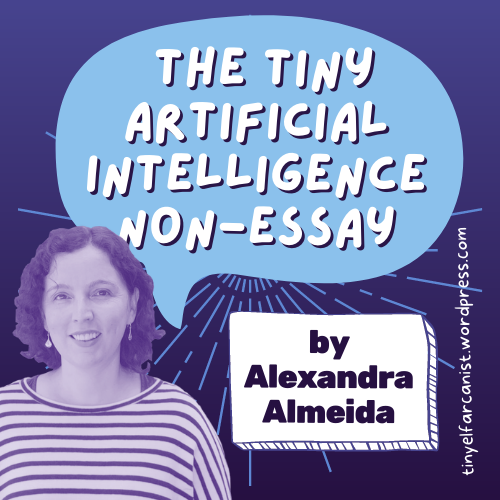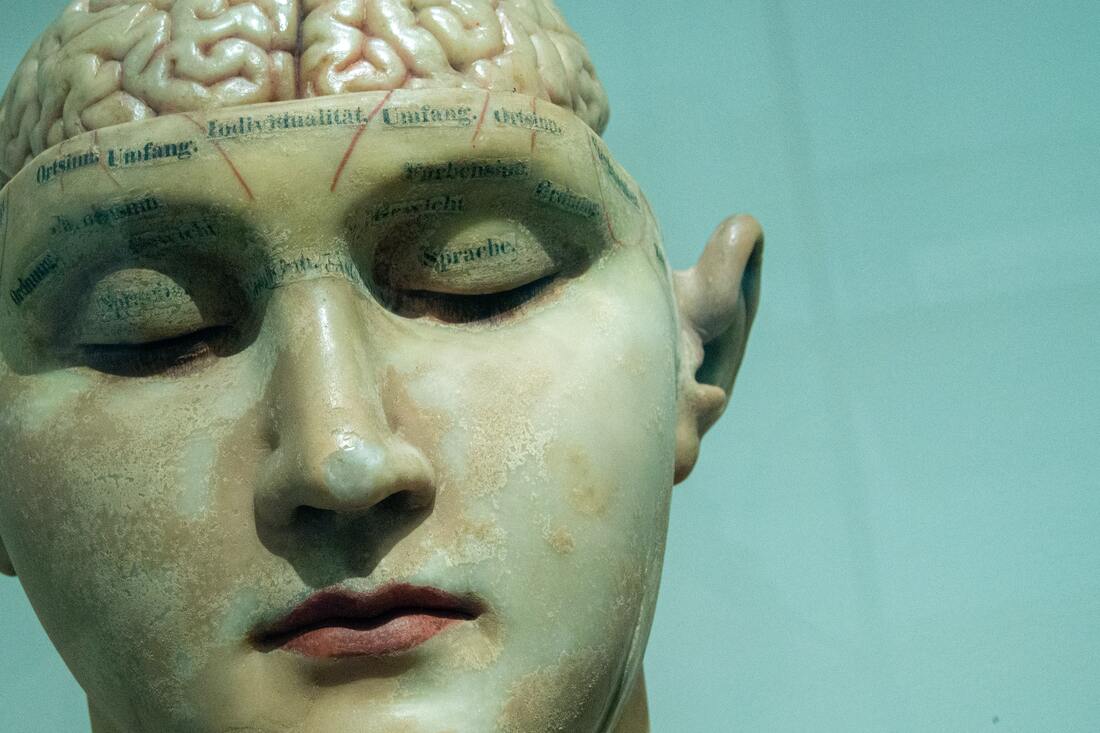Spiral Worlds
|
"Thank you, Mat, for inviting me to write about Artificial Intelligence and encouraging me, somewhat assertively, not to write a thesis. I wonder what gave you the impression that a sci-fi author and digital transformation advisor promoting an AI-centered novel could go on for far too long on AI-related content. It’s such a far-fetched idea."
Please read my tiny artificial intelligence non-essay here. Tiny Elf Disclaimer: No author was harmed (or coerced) during or before the writing of this article. Alexandra Disclaimer: . . .
0 Comments
Science first6/9/2022 My life has been equally full of magic and science. It may seem an odd combination for many, but it never felt paradoxical to me. As one of my heroes would say, “Any sufficiently advanced technology is indistinguishable from magic.”
At seven years of age, I would sit in front of the TV, eagerly awaiting the next episode of Battlestar Galactica. Myths, gods, machines, and humans all perfectly blended into a series of adventures where a thoughtful, selfless hero and his impulsive, self-serving sidekick showed me the magical power of friendships between opposites. Twenty-six years later, I would break all the rules to download the most recent episodes of the reimagining of the original series just as it aired in the US. This time, it was the well-crafted politics and the mercurial Kara “Starbuck” Trace that kept me on the edge of my seat. The beloved series had evolved with the times, just as I had done. I still own—lawfully this time—both series on all mediums available. The original Captain Apollo, Kara “Starbuck” Trace, and the myth-filled bot-controlled worlds they inhabit have become part of the fabric of my imagination. Kara was a refreshing upgrade from another fictional rebellious woman who also shaped my pre-teen years—Zimmer Bradley’s Morgan Le Fay. At the tender age of ten or eleven, I devoured the Mists of Avalon, highlighting extracts that felt like universal truths. I contemplated the plight of women, particularly the brown-haired ones—those with all the magic and none of the fair beauty. It was my first taste of feminism, intricately woven into the magical realism so common in the lives and stories of my Portuguese elders. Decades later, my world collapsed as I was writing my first fantasy novel very much inspired by Zimmer Bradley’s writing. The author’s horrid crimes surfaced, and her life’s work took on a completely different meaning. In my attempts to make peace with it all, I accepted that art has as much to do with the creator as the consumer, and that my values and imagination shaped my Mists of Avalon and my Morgan Le Fay. In my teens, authors like Arthur C. Clarke, Carl Sagan, and Ray Bradbury all opened my world and imagination, while my father kept feeding me a steady flow of science magazines. There was no turning back. I was too addicted to the What Ifs to care about the What's Next. On TV, the 80s version of The Twilight Zone kept me glued to the screen, a feeling only matched decades later by Charlie Brooker’s Black Mirror. During my transition to adulthood, my interest in science fiction books fizzled, to be replaced by TV and Film, particularly the ones inspired by the works of Philip K. Dick. This was a period where I struggled to find books with the fresh ideas that had fired new connections in my young neurons, like Ray Bradbury’s Storm of Thunder and its “Butterfly Effect.” My career in technology kept me close to the worlds of artificial intelligence, robotics, quantum mechanics, and blockchain, to name a few. Still, I struggled to find Science Fiction authors who could blow my mind. The feeling I got recently from reading the works of Liu Cixin and Ted Chiang. The first later betrayed my devotion to his writing with his dangerous dissemination of gender stereotypes in Death’s End. But where’s the magic? You may ask. Wait, let’s transition slowly into that realm. I feel the need to protect my oversensitive heart from your judgment by showing off my brain first. It works like a charm, you see? Intimidated or confused, they back off and fail to figure out how vulnerable I am. Empathy is a curse, sometimes… Perhaps the best transition between realms is to focus on my early twenties and the day I read Antonio Jose Damasio’s The Descartes Error. A time when I was overwhelmed by a loved one’s mental health issues. I feared I would share her fate, but I found relief and joy in the discovery of neuroplasticity and neuro-linguistic programming (for self-help, not the manipulation of others.) Damasio’s connection between emotion and decision-making drove me to learn more about behavioral economics, and the nature of consciousness in humans and...bots. I continued my journey by immersing myself in the Simulation Hypothesis to uncover the inevitability of a panpsychist universe—the magical universe I’ve been experiencing all my life. A story I will leave for another day. Like many other inspired moments in my life, the Spiral Worlds' seed was planted at SXSW in 2019. I came up with the premise as I watched George Hotz's talk about Jailbreaking the Simulation. You can see me here, at minute 40, asking George the question that led to this story. I started by stating, "I can't believe I'm saying this out loud." Yeah, three and half years later I still don't quite believe I'm about to publish a series of books about a contrast-making simulation that speaks to the latest advancements in both the fundamental laws of science and artificial intelligence. Wish me luck, Alexandra |
SPIRAL WORLDS' NEWSLETTER
Stay in touch by subscribing to my mailing list where I answer readers' questions about the series. Do stay in touch. I'd love to hear from you.
Much love, A.
Much love, A.
© Alexandra Almeida 2022


 RSS Feed
RSS Feed







